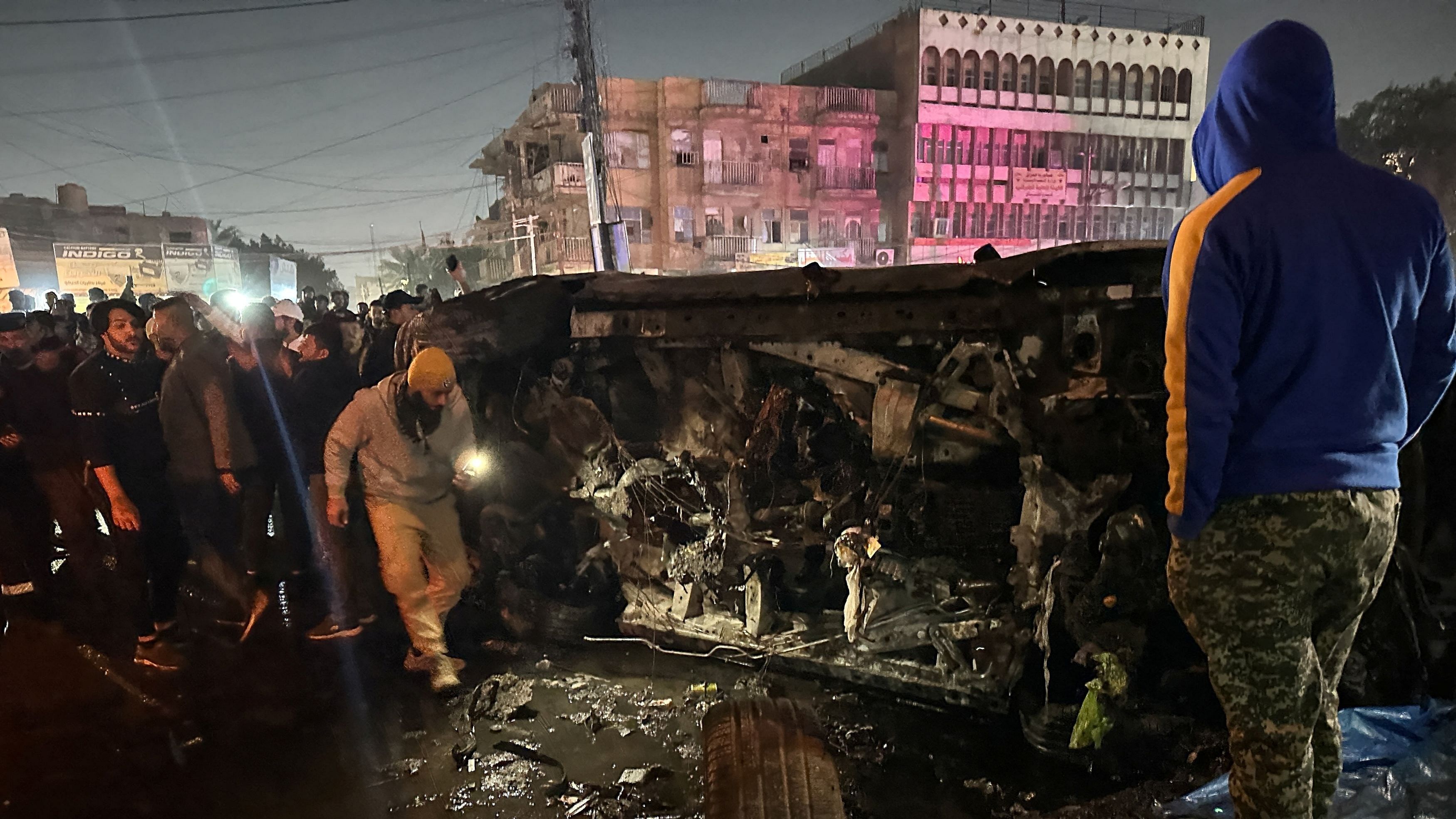
People inspect a vehicle, after what security sources said was a deadly drone strike, in Baghdad, Iraq, February 7, 2024.
Credit: Reuters Photo
A U.S. Special Operations retaliatory drone strike in the Iraqi capital Wednesday killed a senior leader of a militia that U.S. officials blame for recent attacks on American personnel, the Pentagon said, following up on President Joe Biden’s promise that the response to a slew of attacks by Shiite militias would continue.
The Pentagon said the man was a leader of Kataib Hezbollah, the militia that officials have said was responsible for the drone attack in Jordan last month that killed three American service members and injured more than 40 more.
A U.S. official said that the strike was a “dynamic” hit on the militia commander, whom U.S. intelligence officials had been tracking for some time. A second official said the United States reserved the right to strike other Shiite militia leaders and commanders.
A senior Kataib Hezbollah official and Iran’s Revolutionary Guard both said that two commanders had been killed in the strike. Witnesses said identification cards found nearby identified them as Arkan al-Elayawi and Mohammed “Abu Bakr” al-Saadi.
In response, crowds gathered in the streets of Baghdad, chanting “America is the devil.”
Maj. Gen. Tahsin al-Khafaji, a spokesperson for Iraq’s security services, called the strike “an aggression,” and said it “violated Iraqi sovereignty and risked dangerous repercussions in the region.”
Kataib Hezbollah, based in Iraq, is considered a proxy of Iran, and the United States considers the group a terrorist organization.
U.S. officials blame Iran and the militias aligned with it for what had become a near-daily barrage of rocket and drone attacks against U.S. forces in Iraq and Syria since the war between Hamas and Israel began Oct. 7. The Biden administration has sought to calibrate retaliatory airstrikes to deter such groups while avoiding a wider war.
But when a drone attack hit a remote base in Jordan on Jan. 28, killing three American service members, administration officials said that a red line had been crossed, and Biden promised a sustained campaign of retaliation.
After that strike, Kataib Hezbollah said it would halt attacks on U.S. forces, at the behest of the governments of Iraq and Iran, reflecting Iran’s reluctance to directly confront the United States. But other groups involved in such attacks have not made similar commitments.